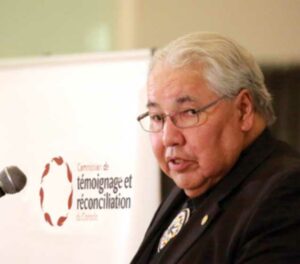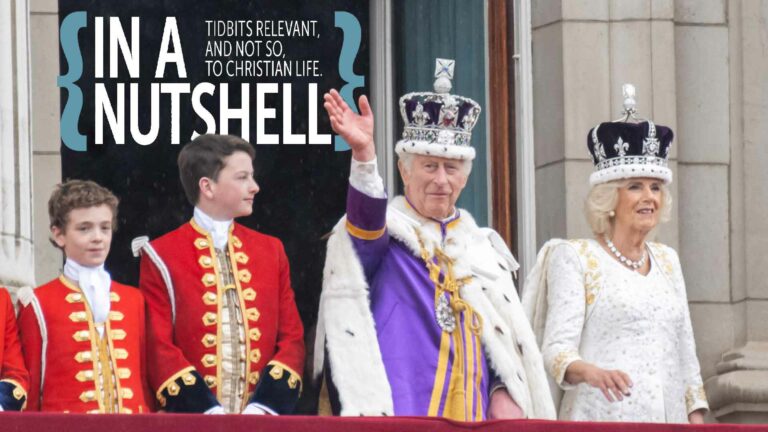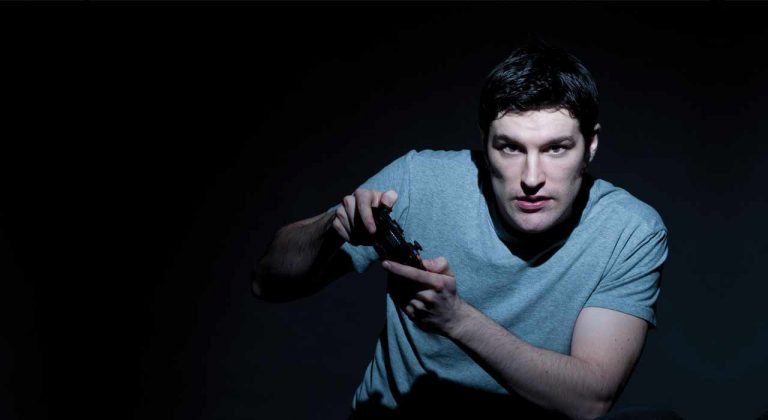Indigenous peoples
Residential schools: the lesson that’s being lost
Our government needs to stop indoctrinating children
*****
As history teachers never fail to remind us, “those who don’t learn their history are doomed to repeat it.” The double meaning is most often lost on their students – that if they don’t pull up their grades, they’ll be doing History 11 next year too. But as adults, it’s the original intent of this adage that we too often overlook: that if painful lessons of the past are forgotten, then we’re going to feel that same pain again. That’s especially true when it comes to the history of Canada’s Indigenous residential school system, where one of the key lessons is being lost.
As Canadians have become aware, the history of the schools is a history of sins being committed against the country’s Indigenous peoples. The sins were of two different sorts, and both have been publicly acknowledged, especially in recent years. But sadly, only one of the two is being universally rejected.
1. Ideological indoctrination
 INDOCTRINATION CONDEMNED: Justice Murray Sinclair, who headed the Truth and Reconciliation Commission, called the residential schools, “cultural indoctrination centres.” (Picture credit: Art Babych / Shutterstock)
INDOCTRINATION CONDEMNED: Justice Murray Sinclair, who headed the Truth and Reconciliation Commission, called the residential schools, “cultural indoctrination centres.” (Picture credit: Art Babych / Shutterstock)
The first sin involves the indoctrination of Indigenous children. It’s been more than a decade now since the Truth and Reconciliation Commission (TRC) started traveling the country to collect testimonies about Canada’s residential schools. As a nation, we learned about how the schools had been intended to teach the children a government-approved ideology, even over the objections of their parents. When the TRC report was released in 2015, the chief justice of Canada’s Supreme Court, Beverley McLachlin, said the findings amounted to “cultural genocide.” The chair of the TRC, Justice Murray Sinclair, agreed with her assessment:
"The evidence is mounting that the government did try to eliminate the culture and language of Indigenous people for well over a hundred years. And they did it by forcibly removing children from their families and placing them within institutions that were cultural indoctrination centres.”
2. Abuse
It’s the second sin that’s dominated recent headlines. In May of 2021, news broke that “a mass grave filled with the remains of 215 Indigenous children, some as young as three…” had been discovered on the grounds of the Kamloops Indian Residential School. The reaction across the country was immediate: impromptu memorials appeared, and flags were lowered and kept at half-mast for the next half year. Just a few days later a bill passed unanimously in the House and Senate that declared a new statutory holiday: Sept. 30 would be the National Day for Truth and Reconciliation.
Today, eighteen months later, it’s starting to look like this mass grave might not be a grave at all – no bodies have been unearthed. But the initial reports made headlines across the country, and around the world, and in the process brought more attention to the physical harms that had been done within the schools’ walls. The TRC had interviewed more than 6,000 former students and staff, and their testimonies included thousands of instances of molestation and all sorts of physical abuse. The Kamloops mass grave might not be real (and as Mark Penninga notes further on in this issue, it is important to find out one way or the other), but the outrage it spawned brought renewed attention to very real sins of the past.
A difference
 REPENTING OF PAST, BUT NOT PRESENT SINS: The caption for this June 1, 2021 stock photo noted it was part of a “memorial in tribute to 215 aboriginal children whose remains found in Residential School in Kamloops.” Though the 215 graves look like they won’t turn out to be graves at all, their “discovery” in Kamloops was still a pivot point for the country. It shifted attention from the ideological indoctrination that was behind the creation of these government schools to the physical and sexual abuse that were not. To state it another way, government schools have always been about ideological indoctrination, but it’s only with the residential schools that this indoctrination has been recognized for the wicked government overreach that it is. And then with Kamloops, the nation’s attention shifted. This shift of focus has allowed the government to get away with repenting only of its past abuse, even as its schools unrepentantly continue ideological indoctrination to this day.
REPENTING OF PAST, BUT NOT PRESENT SINS: The caption for this June 1, 2021 stock photo noted it was part of a “memorial in tribute to 215 aboriginal children whose remains found in Residential School in Kamloops.” Though the 215 graves look like they won’t turn out to be graves at all, their “discovery” in Kamloops was still a pivot point for the country. It shifted attention from the ideological indoctrination that was behind the creation of these government schools to the physical and sexual abuse that were not. To state it another way, government schools have always been about ideological indoctrination, but it’s only with the residential schools that this indoctrination has been recognized for the wicked government overreach that it is. And then with Kamloops, the nation’s attention shifted. This shift of focus has allowed the government to get away with repenting only of its past abuse, even as its schools unrepentantly continue ideological indoctrination to this day.
Two sins were committed in the residential schools, but our governments are only repenting of one. They are repenting of the past abuses, even as in the present they continue to use their schools to indoctrinate another generation.
It’s the unrepentant and ongoing nature of this sin that makes it the more pressing to deal with. We need to recognize, too, that the problem isn’t simply that it continues, but that it’s built right into the system. The abuse was a matter of neglect, while the indoctrination was a matter of deliberate design. As League of Canadian Reformed School Societies coordinator John Wynia noted in a recent Real Talk episode:
“In residential schools, parents of First Nations children had their kids taken away from them. The idea was to assimilate them into the ideology of Western society, so that they could fit, and that has had devasting impacts on the Indigenous community. And it is recognized as a terrible thing, but it will be interesting to see whether that lesson of history is applied to the sexual orientation and gender identity movement.”
Will that lesson be applied? It hasn’t been to this point. The reason the lesson is being lost is because the connections between past and present aren’t being made. In a January 5 article the National Post’s Tom Blackwell highlighted a current and devasting example of how government schools are still deciding they know better than parents what’s best for their own children:
“When a student in a Calgary Grade 6 class came out as transgender this year, the teacher made one thing clear to the other pupils: they mustn’t let slip their classmate’s new gender identity to her parents. The couple was not yet aware of the change. It seemed like an odd message for a group of 11-year-olds, says the mother of one of the pupils. ‘This upset me so much,’ she says. ‘Kids were being taught to lie to parents.’”
Blackwell clearly doesn’t like what’s happening. But he didn’t make the connection to what happened in the residential schools. He didn’t recognize that this is just more of the same.
The lesson is even being lost on the victims. Instead of opposing today’s “cultural indoctrination centres,” Indigenous groups are trying to use government schools to present their own ideology to students. In British Columbia, for example, university education students have been required to include one of nine “First Peoples Principles of Learning” in their lesson plans. Some of the principles are pretty mundane, more Dale Carnegie or Jordan Peterson-esque than anything specifically Native. “Learning involves patience and time.” Sure. Okay.
But the very first principle reads:
“Learning ultimately supports the well-being of the self, the family, the community, the land, the spirits, and the ancestors.”
Learning does not support the spirits and the ancestors. And pushing that on education students is a promotion of a Native spirituality, over and against Christianity.
In November of last year, Canadian Reformed teachers in Western Canada came together for an “Indigenous Perspectives in Reformed Schools” conference and I was allowed to tag along. One of the speakers, Patti Victor, is a Pentecostal pastor, a member of the Stó:lō, and a First Nations advisor for Trinity Western University. I asked her what she thought about the government requiring more First Nations content in the curriculum, regardless of what parents might want. She conceded that the approach was less than ideal, but argued that sometimes less than ideal means have to be used to push forward what needs to be done. She didn’t recognize that this same sort of thinking – pushing a certain ideology even against parents’ wishes because it’s for the kids’ good – would have been a motivation for the residential schools too. She wasn’t making the connection either.
Lost no more
 IT'S STILL HAPPENING: Sooke School District students on a public school system float in the 2019 Victoria Pride Parade. The government has never stopped using schools as cultural indoctrination centers. (Picture credit: Blake Elliot / Shutterstock)
IT'S STILL HAPPENING: Sooke School District students on a public school system float in the 2019 Victoria Pride Parade. The government has never stopped using schools as cultural indoctrination centers. (Picture credit: Blake Elliot / Shutterstock)
Our history teacher’s adage has proven itself true: Canada hasn’t learned from its history, so we’re doing it all again. Even when a government or First Nations leader expresses horror at how residential schools were used as “cultural indoctrination centres,” they don’t apply the lesson to what’s going on today. Of course, it’s no surprise that our governments aren’t making those connections. But what they won’t do, we can. When Sept. 30 comes again this year we can voice the lesson that’s been lost: that education is a God-given parental responsibility, and government will never be up to the task.
To demonstrate the government’s inability, we can remember what happened in the residential schools, and make the connections no one else will, to the horrors going on in government schools today: the far from safe-sex that’s taught, and the gender confusion, depression, and anxiety that’s being fostered. We can explain that this is all a fruit of what the government’s schools are teaching about God. As R.C. Sproul put it:
“Every education, every curriculum, has a viewpoint. That viewpoint either considers God in it or it does not. To teach children about life and the world in which they live without reference to God it to make a statement about God. It screams a statement. The message is either that there is no God or that God is irrelevant. Either way the message is the same.”
For generations residential schools taught First Nations children that their parents were irrelevant. Today’s schools teach that God is irrelevant too. It all has to stop.
Conclusion
While “stop indoctrinating children!” is a good message, God’s people – and specifically our Reformed churches – can give the rest of our country so much more. God has gifted us with Christian schools, and while we aren’t going to open the doors to the rest of Canada, we can invite them to come take a look. They’ll need to: the government has been running its schools for so long, the average Canadian can’t even imagine how education could be done any other way. We can show them there is another way: parental schools do exist! We’ll need to invite our neighbors, friends, and community, to come see what a family and a community looks like when parents are taking up their God-given educational responsibilities.
This isn’t about showing off our bricks and mortar, textbooks and curriculum. It’s about taking off the bushel and letting our light shine. Shy sorts that we are, we might not want to invite our neighbors’ scrutiny since we know we’re far from perfect. We’ll need to remember this really isn’t about us; what we’re showing off is that God’s ways are best, and how it’s only because we’re listening to Him that we have fruit to show. Our homes aren’t perfect, but they are calmer, our kids better adjusted, harder-working, less troubled, kinder and happier – they are a light! So we should invite the world to look, and tell them that it has nothing to do with us, and everything to do with our God.
And, finally, we can invite our fellow Canadians to imagine what it would look like in their own families, communities, and in the country if parents everywhere took up their God-given responsibilities to shape and mold their own children.
This is one of several articles we’ve published about Canada’s history with its Indigenous peoples, with the sum of the whole being even greater than the parts. That's why we'd encourage you to read the rest, available together in the March/April 2003 issue. Top picture is of a Kamloops Indian Residential School. Picture credit: ProPics Canada Media Ltd / iStockPhoto.com
































